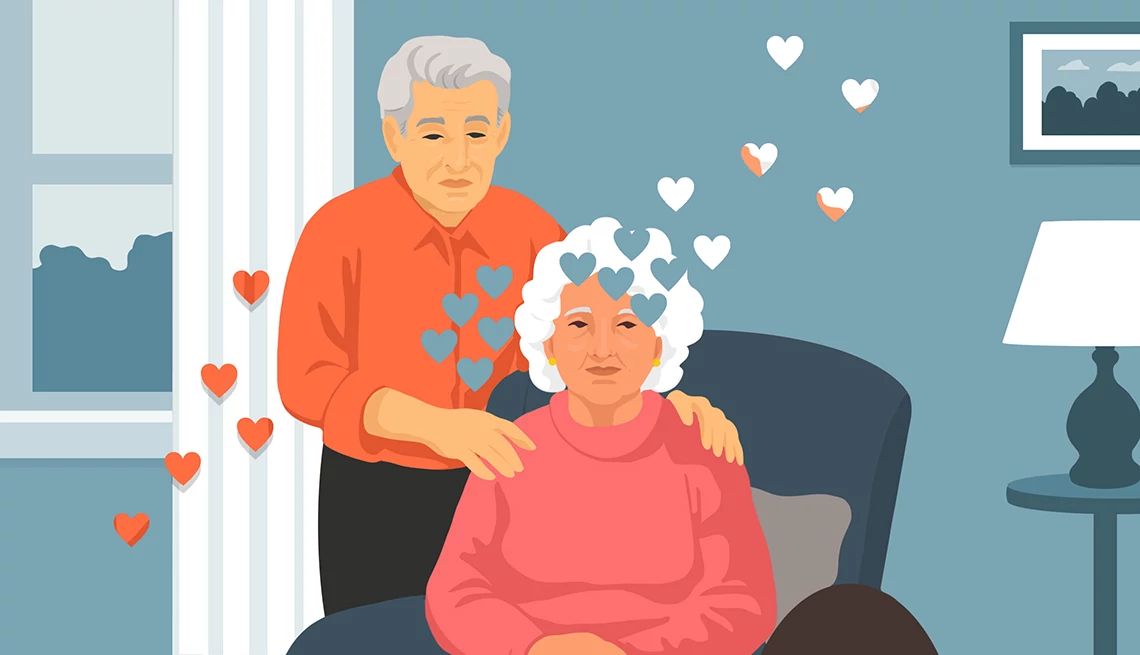AARP Hearing Center


I was a caregiver for two husbands: first in my 30s, and again in my 50s. I tried so hard to hold on to them — to us — and remember with great sadness when our romantic connections disappeared.
This week’s question resonates. My hope for our reader: that our sexuality and relationship experts’ wide-ranging advice brings you comfort and a path forward.
Is it normal to lose your romantic love for a partner when you start to become their caregiver? My wife is in the early stages of dementia, and I have stopped having those feelings for her.
What you describe is both very common and deeply painful, says neuropsychologist Hayley B. Kristinsson, a health sciences assistant clinical professor at the University of California, Irvine.
“It’s natural and normal to notice those changes [in feelings],” says Kristinsson. “It’s a very human response to changing circumstances, and not a personal failure.”


In the Mood
For AARP’s In the Mood column, writer Ellen Uzelac will ask experts your most pressing 50+ sex and relationship questions. Uzelac is the former West Coast bureau chief for The Baltimore Sun. She writes frequently on sex, relationships, travel and lifestyle issues.
Your shifting roles. Caregiving changes everything, and with dementia there’s a double whammy, says sexuality educator Joan Price, author of Sex After Grief: Navigating Your Sexuality After Losing Your Beloved.
Not only has your partner changed, but your role has changed, Price says — and that completely upends your relationship dynamic.
Many people report a shift in feelings from romantic love to something more like parental, protective or duty-bound love, according to licensed marriage and family therapist Chris Fariello.
“This doesn’t mean you’ve stopped caring, but the emotional dynamic has changed,” says Fariello, a certified sex therapist and founder and director of the Philadelphia Institute for Individual, Relational & Sex Therapy. “It’s a reflection of the intense emotional and psychological toll caregiving takes, especially when the person you love is changing in irreversible ways.”
Feelings of grief, frustration and fatigue. It’s not uncommon in situations like yours for romantic and sexual feelings to be superseded by feelings of grief, frustration, exhaustion and anger, says Melanie Davis, a certified sexuality counselor and educator at the New Jersey Center for Sexual Wellness.

































































You Might Also Like
In The Mood
Writer Ellen Uzelac asks experts your most pressing 50+ sex and relationship questionsI Don’t Want to Spend 24/7 With My Husband
Is that normal, or is it a sign our relationship is on the fritz?
I Am a Serial Dater. How Do I Settle Down?
A man writes that he’s addicted to the chase. The relationship that follows — not so much